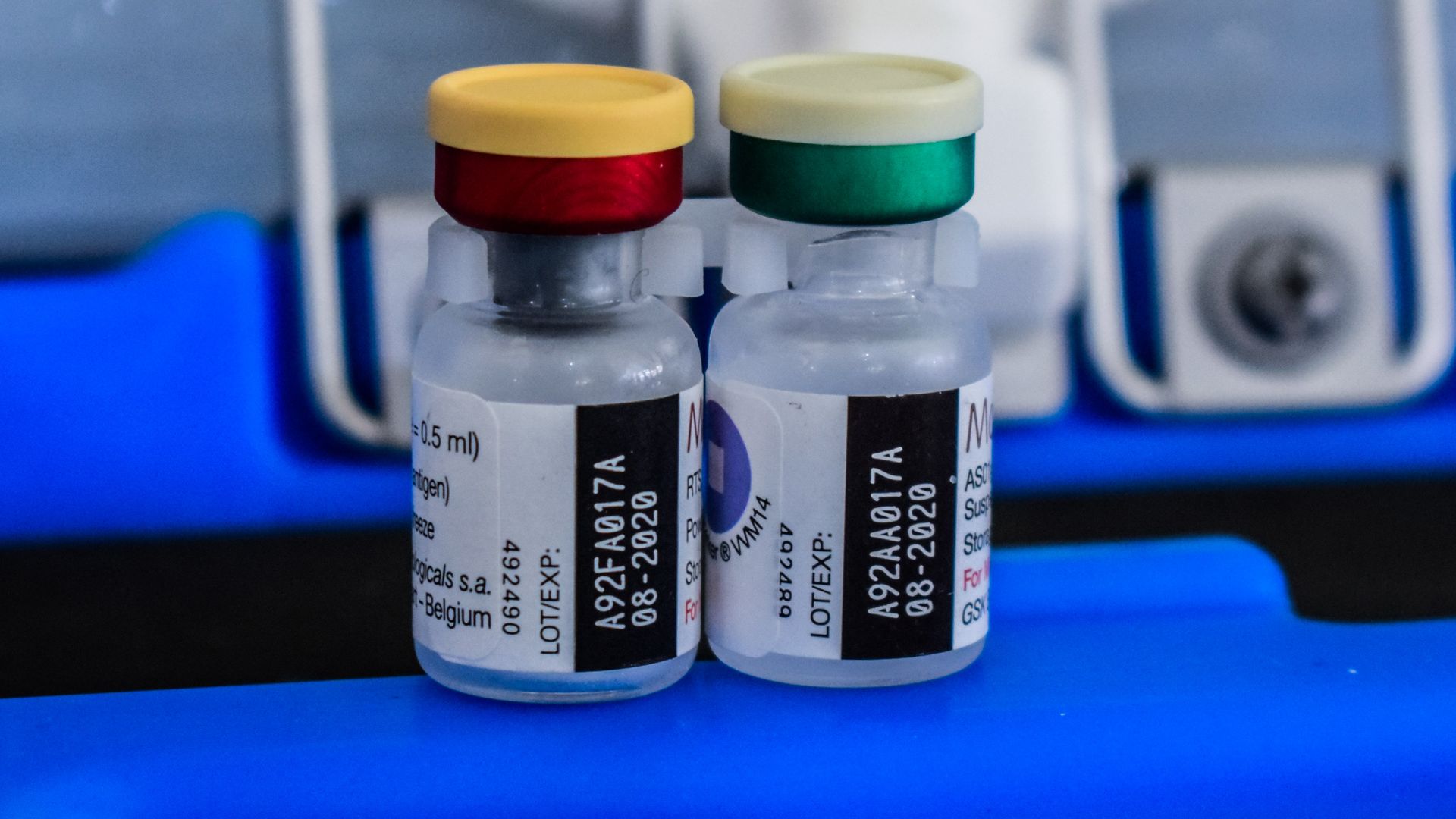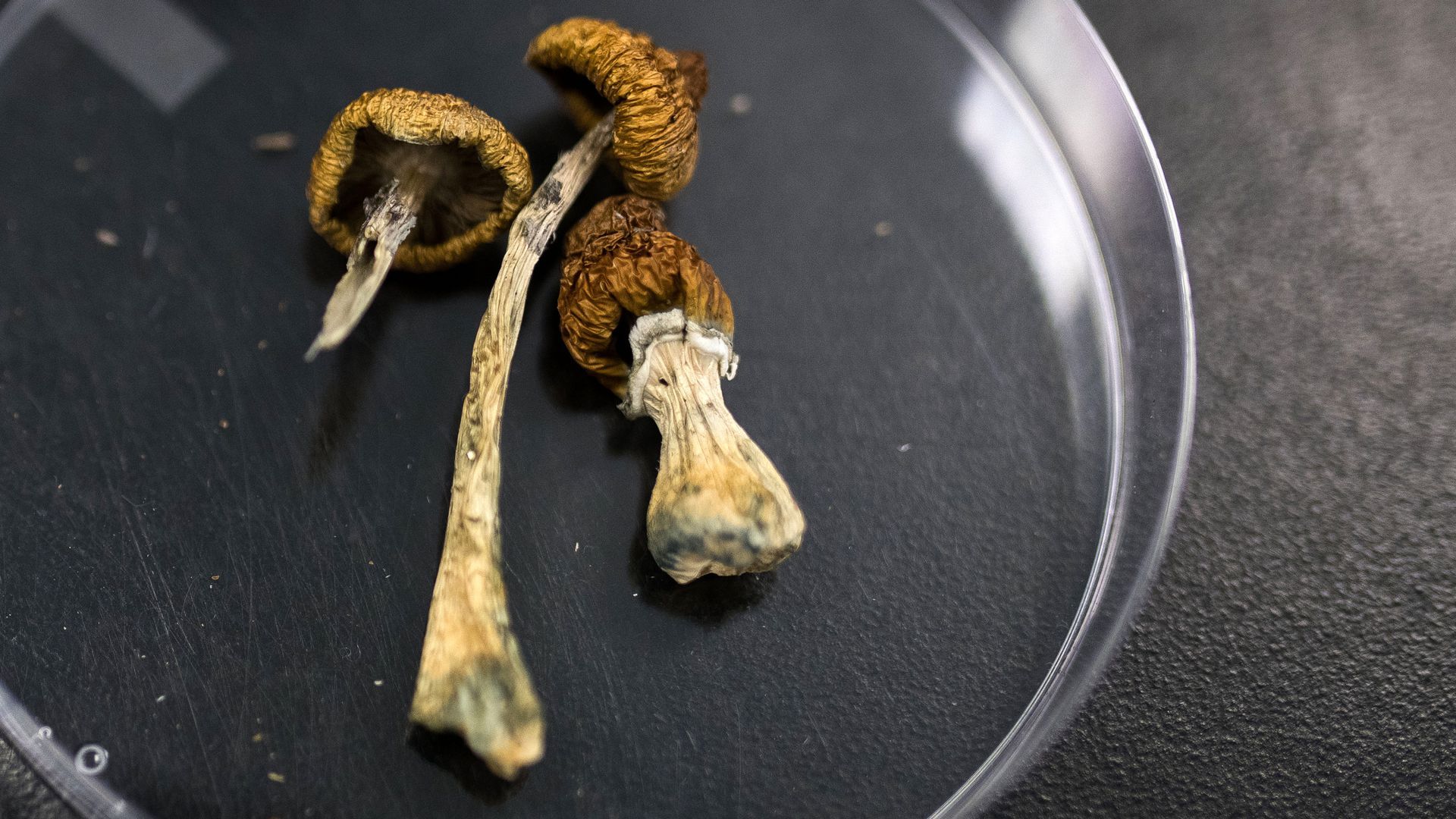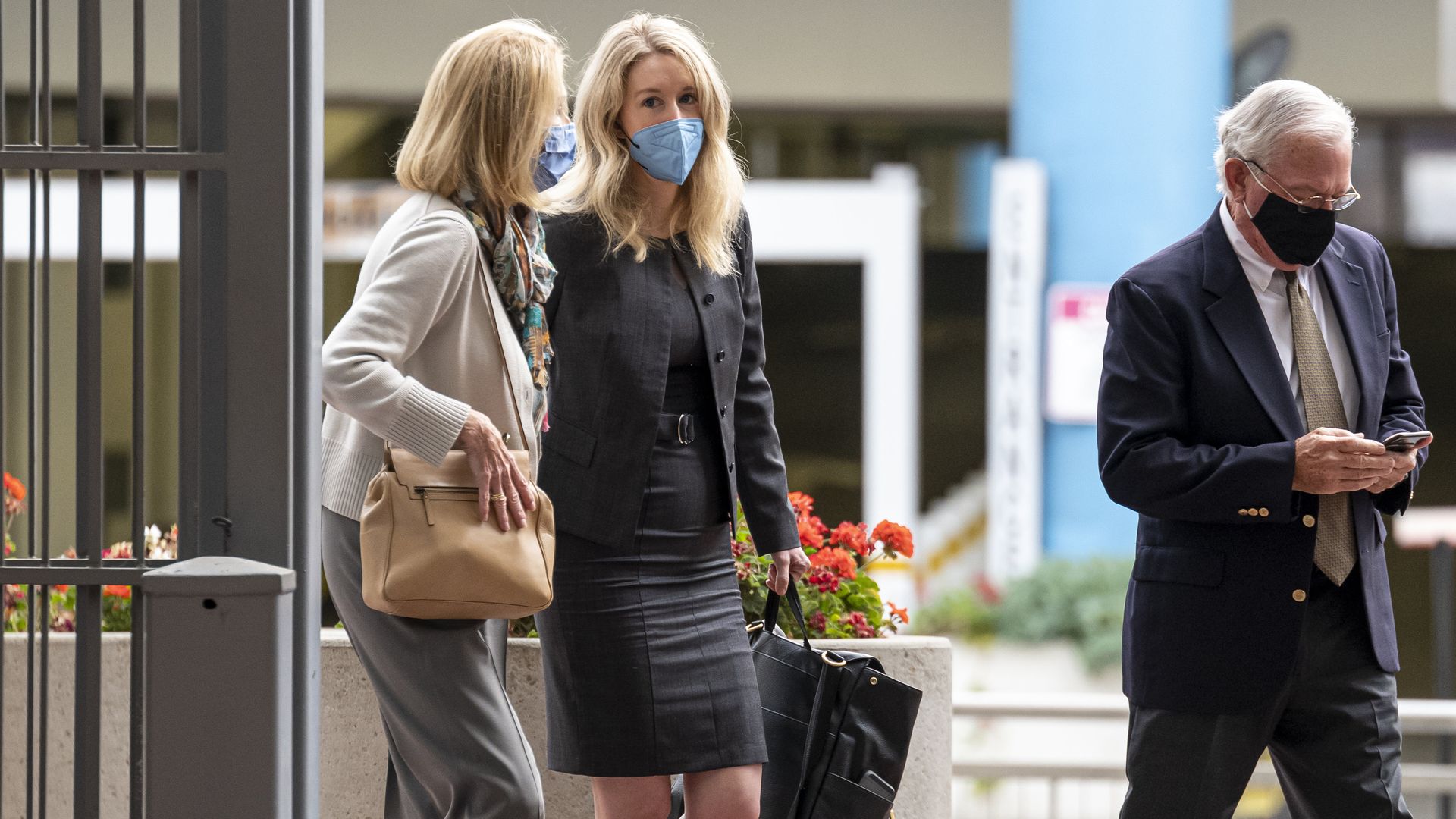| | | | | | | Presented By UnitedHealth Group | | | | Axios Vitals | | By Tina Reed ·Oct 07, 2021 | | Good morning, Vitals readers. Today's newsletter is 952 words, or a 4-minute read. 💉 Join Axios' Marisa Fernandez and Margaret Talev today at 12:30pm ET for a virtual event on what's next for health care. Register. | | | | | | 1 big thing: COVID deaths are finally falling |  Data: N.Y. Times; Cartogram: Kavya Beheraj/Axios COVID-19 cases have been falling across the U.S. for weeks — and now deaths are finally on the decline, too, Axios' Sam Baker writes. Why it matters: The Delta wave may truly be behind us, and though unvaccinated people in heavily unvaccinated areas will always remain at risk, getting the virus under control would allow the country as a whole to breathe a little easier this fall. By the numbers: The U.S. is now averaging roughly 102,000 new cases per day — a 22% drop over the past two weeks. - Deaths are also falling, by a nationwide average of about 13%. The virus is now killing roughly 1,800 Americans per day.
- Deaths had been rising for the past few weeks even as infections declined. That's to be expected — deaths are the last number to go up when a new wave sets in, and the last to go down when that wave ebbs.
Context: A year ago, when no one was vaccinated and the worst wave of the pandemic was just getting started, experts were sounding the alarm because cases had crept up above 50,000. - To be sitting above 100,000 daily cases now, even after millions of Americans have been vaccinated or have some level of immunity from a previous infection, is a sign of just how transmissible the Delta variant is and how poorly the U.S. has contained it.
- And while some vaccinated people do get infected, almost none will die from those infections. But six months after every American adult became eligible for a vaccine, the virus' death toll in the U.S. is still roughly equivalent to a 9/11 every two days.
The bottom line: The number of Americans contracting and dying from COVID-19 remains quite high, but things are moving in the right direction. Share this story. |     | | | | | | 2. Who's still unvaccinated |  Data: KFF September 2021 Vaccine Monitor; Chart: Jacque Schrag/Axios Conservative media sometimes blame the problem of the unvaccinated on people of color, but the data show vaccine resistance is mostly about red America and younger adults now, KFF president and CEO Drew Altman writes. By the numbers: 59% of the unvaccinated are Republicans, 64% are white and 46% have a high school education or less. - By contrast, 14% are Black, 16% are Hispanic, and 27% live in cities.
Between the lines: These unvaccinated adults often see their decision not to get the vaccination as an expression of their personal freedom. - When they do get vaccinated, persuasion and information are not moving them nearly as much as seeing family members and neighbors get sick.
- Employer mandates are another reality influencing their behavior.
The intrigue: Then there's another group who also make up a significant share of the unvaccinated: younger adults. Nearly 40% of the unvaccinated are 30–49 years old and another 27% are 18–29. - These groups will make critical decisions about vaccination of the next big group of unvaccinated Americans, children.
The bottom line: If the vaccination effort is to go where the bulk of the problem is, that's now mostly red America, younger adults and their children. Go deeper. |     | | | | | | 3. WHO approves malaria vaccine |  | | | The new malaria vaccine Mosquirix which was approved Wednesday by the World Health Organization. Photo: Brian Ongoro/AFP via Getty Images | | | | The World Health Organization on Wednesday approved the first-ever malaria vaccine and first-ever vaccine against a parasitic disease. The big picture: It could be a "game-changer," as malaria kills more than 400,000 people a year, more than half of whom are under the age of 5, and slows the pace of economic growth in the sub-Saharan countries most affected by the mosquito-borne disease, Axios' Bryan Walsh writes. Yes, but: There are some big caveats to mention about what this shot can and cannot do. - "It's not the easiest weapon to deploy, it only hits its target 30% to 40% of the time and it's not yet clear who's going to pay for it," NPR reported.
- The vaccine, which was developed by GlaxoSmithKline, is given in a four-dose regimen, raising questions over whether that complexity would be unrealistic to deploy in low-resource settings, STAT reported.
But, but, but: "This opens up a whole new avenue for malaria control," says David Schellenberg of WHO's Global Malaria Program, per NPR. |     | | | | | | A message from UnitedHealth Group | | Improving health literacy can achieve better health outcomes | | |  | | | | UnitedHealth Group's research shows older Americans in counties with the highest health literacy levels have fewer hospitalizations and experience 13% lower costs. See how we're working to provide clear, simple, actionable health information to help people achieve better outcomes. | | | | | | 4. Seattle votes to decriminalize some psychedelics |  | | | Photo: James MacDonald/Bloomberg via Getty Images | | | | Seattle's city council voted unanimously this week to decriminalize psilocybin and other naturally occurring psychedelics, Bloomberg reports. Why it matters: The city's move comes amid a broader discussion regarding the medical application of psychedelic drugs, Axios' Yacob Reyes reports. - Past studies have indicated psychedelics can be safely administered in combination with other therapies and may alleviate depression, obsessive-compulsive disorder, and substance use disorders, Axios' Alison Synder writes.
- Denver and Ann Arbor, Michigan, have enacted similar policies, per Bloomberg.
|     | | | | | | 5. 41% of Americans skip prescription doses | | Two in five Americans who take prescription drugs have skipped a dose at least once over the last year, many due to high-deductible health plans, according to a new report from PhRMA. Details: PhRMA surveyed more than 4,700 patients between June 25 and July 9, including 3,612 patients who take prescriptions. - More than half (52%) of the respondents taking prescriptions with a high-deductible health plan reported they'd skipped a dose or otherwise hadn't adhered to their prescription at least once in the last year.
- 66% of respondents said they prefer to pay lower out-of-pocket costs for prescriptions versus paying a lower premium each month.
- That preference for lower out-of-pocket costs was seen particularly among those with disabilities (77%), those managing multiple chronic conditions (74%), those with a household income between $10,000 and $49,000 per year (71%), those who identify as LGBTQ+ (71%), and Americans living in rural areas (70%), the report said.
|     | | | | | | 6. Catch up quick |  | | | Elizabeth Holmes, founder of Theranos, center, arrives at federal court in San Jose, Calif., on Wednesday. Photo: David Paul Morris/Bloomberg via Getty Images | | | - Theranos was "far too ambitious" and made promises it couldn't keep, former Safeway CEO says. (Washington Post)
- The White House will expand the supply of at-home COVID tests by December. (Axios)
- The FDA's internal turmoil could impact boosters, shots for kids. (Roll Call)
- An elbow injury exposes the exorbitant costs of health care. (Scientific American)
|     | | | | | | A message from UnitedHealth Group | | Helping to advance health equity by improving health literacy | | |  | | | | Up to 59% of people in certain U.S. counties have limited health literacy, with older Americans demonstrating the lowest levels of any age group. See how UnitedHealth Group is working to improve health literacy to achieve better outcomes. | | |  | | It'll help you deliver employee communications more effectively. | | | | | | Axios thanks our partners for supporting our newsletters. If you're interested in advertising, learn more here.
Sponsorship has no influence on editorial content. Axios, 3100 Clarendon Blvd, Suite 1300, Arlington VA 22201 | | | You received this email because you signed up for newsletters from Axios.
Change your preferences or unsubscribe here. | | | Was this email forwarded to you?
Sign up now to get Axios in your inbox. | | | | Follow Axios on social media:    | | | | | |









No comments:
Post a Comment